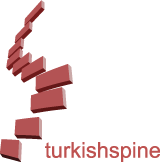ABSTRACT
Background:
The injury mechanism of type II odontoid fractures (TIIOFs) generally occurs as a result of strong flexion or extension that associated to axial overload. This study aimed to find the factors that may affect the surgical outcomes of TIIOF by evaluating the long-term surgical outcomes of 12 consecutive cases.
Material and methods:
Medical records were retrospectively reviewed for all TIIOF cases that were diagnosed or/and underwent surgery in our hospitals from 2011 to 2016. All TIIOF patients who were underwent anterior screw fixation constituted the core sample for this study.
Results:
This series included three females and nine male patients, with a mean age of 48.8±20.9 (16–85) years. The mean follow-up period was 44.9±22.4 (12–74) months. The mean of duration between the accident and surgery was 9.6±22.0 (0- 77) days. Traffic accident (n=6) and falling (n=6) were the causes of the TIIOF in our patients. The most common complaint was neck pain (100%). Preoperative Frankel scale was D (4) in four patients while all patients were discharged with Frankel grade E (5). On 12th month-control visit the rate of fusion was 83.3% (10/12). Two patients were revised for malposition.
Conclusions:
Anterior odontoid screw fixation is a minimal invasive approach. Using this approach is safety for the posterior cervical elements. Despite our series is not big enough to generalize, smoking and etiologies did not affect fusion, whereas advanced age (> 79) and history of more than one chronic disease can cause delayed fusion.



